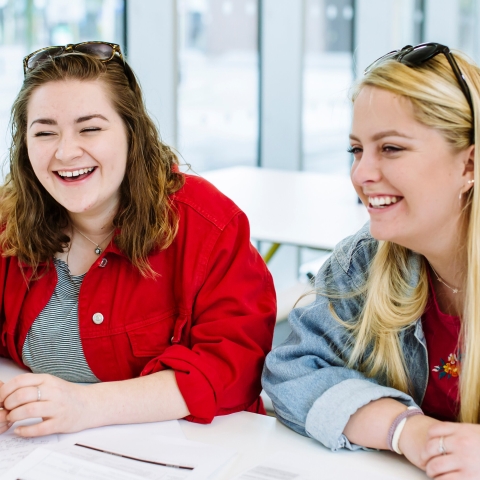
Sidebar navigation
- Academic writing style
- Acronyms and initials: how to use apostrophes and plurals
- Basic data interpretation
- Basic essay structure
- Better essays: signposting
- Better paraphrasing
- Commas and its
- Dissertation tips
- Essay: task words
- Experimental laboratory reports in engineering
- Extending vocabulary and commonly confused words
- Key features of academic reports
- Paragraphs: main body of an assessment
- Reports and essays: key differences
- Writing clear sentences
- Writing: flow and coherence
- Reflective writing introduction

Written assignments
Discuss others' work in your writing without using direct quotes
Paraphrasing the work of others is an important skill for university assignments. The transformation of the words, phrases and ideas of different authors into your own words avoids plagiarism, but you'll still need a citation or citations as appropriate.
Paraphrasing is the skill of using the opinions and evidence provided by one or multiple authors to reach useful conclusions and insights. Paraphrasing can improve the flow, development and cohesion of your ideas.
Overview
When paraphrasing:
- always include an in-text citation for research and statistics
- don't use the synonym technique by itself
- use plagiarism software to check how much of your work is direct quotations
- have a good balance of different viewpoints
- use a paraphrased idea or quote in synthesis with other paraphrased text, and not in isolation
- even if you make some language errors, it's better to turn the author’s words into your own
Paraphrasing techniques
Here we explain three techniques for paraphrasing. This is the original text used in the examples below:
The aim of Team-based Learning is for students to use the concepts they learnt in class to solve practical problems that are comparable to those they will face in their working world (Sparrow & McCabe, 2012).
Using synonyms
One version of paraphrasing is to replace key words in a phrase with different words which keep the same meaning. Using this technique alone will result in 'patch writing', where only patches of the text change and a lot of the text remains similar. Unless you change the whole sentence, plagiarism software will detect this and report it.
The goal of Team-based Learning is for students to use the ideas they learned in class to solve real difficulties that are similar to those they will face in the workplace (Sparrow & McCabe, 2012).
Nominalisation (changing the word family)
Another way to paraphrase is to change a verb to a noun in the quote, or a noun to a verb. You'll use the same word but change the word family. In this example we've changed the verb 'to solve' to the noun 'solution':
The goal of Team-based Learning is for students to use the ideas they learnt in class to find solutions for real difficulties that are similar to those they will face in the workplace (Sparrow & McCabe, 2012).
Changing from the active voice to the passive voice
Changing text to the passive voice involves changing the tense of the verb. Changing the active voice to the passive voice can transform the words in a sentence. In the example below, 'they learnt' changes to 'that were learnt' and 'will face' changes to 'are to be faced'. You could also replace 'that were learnt' with 'that they were taught'. These changes keep the original text's meaning but use different words. Sometimes changing the tense to the past, present or present perfect tense can be as effective as changing the voice of a sentence, and can help prevent over-using the passive voice.
The goal of Team-based Learning is student use of the ideas that were learnt in class to find solutions for real difficulties that are similar to those that are to be faced in the workplace (Sparrow & McCabe, 2012).
Cautious Language
You should use cautious language in your assignments.
The goal of Team-based Learning is student use of ideas that were learnt in class to find solutions for real difficulties that may be similar to those that are to be faced in the workplace.
Final version
Using these techniques, we can paraphrase the example text:
The goal of Team-based Learning is student use of ideas that were learnt in class for the solution of real difficulties that may be similar to those that are to be faced in the workplace (Sparrow & McCabe, 2012).
Download our paraphrasing revision sheet
Download this page as a PDF for your essay writing revision notes.




